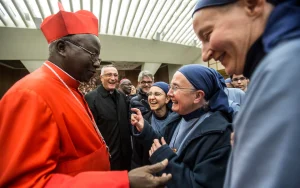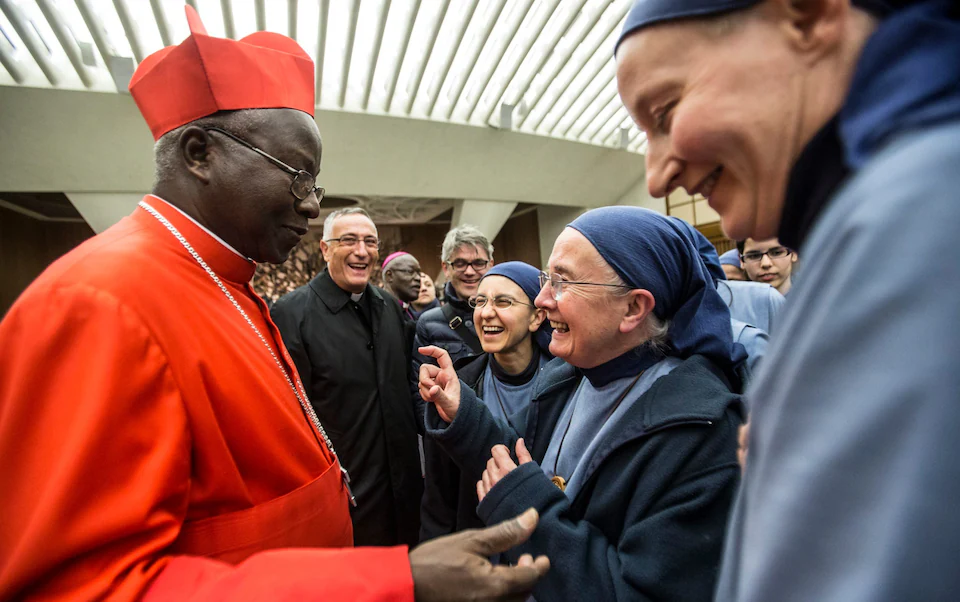African cardinal may be barred from participating in next week’s historic papal conclave due to uncertainty about his date of birth—an issue that could have serious implications for the legitimacy of the next pope’s election.
Cardinal Philippe Ouédraogo, the Archbishop Emeritus of Ouagadougou in Burkina Faso, is at the center of a peculiar age-related dispute. Official Church records are unclear whether he was born on January 24, 1945, which would make him 80 years old and ineligible to vote, or on December 31, 1945, which would place him at 79, just within the age limit set by the Catholic Church.
Why His Age Matters
Under the apostolic constitution Universi Dominici Gregis, only cardinals who are under the age of 80 on the day the conclave begins may participate in the secretive process to elect the next pope. The conclave is scheduled to begin on May 7, the first following the death of a sitting pope in over two decades.
If Cardinal Ouédraogo were to vote and was later found to be ineligible, it could potentially render the election invalid, casting a shadow over the new pontificate.
Two Birthdates, One Cardinal
The discrepancy appears rooted in Ouédraogo’s rural upbringing. “In my village, there were neither hospitals nor schools. I was born at home and was not given a birthdate,” the cardinal said in a recent statement.
He explained that January 25 was assigned randomly when he entered seminary, for bureaucratic purposes. Later, Burkina Faso’s national registry gave him December 31 as his official birthdate—common practice for many citizens whose actual birthdates were never formally recorded.
Further complicating matters, the Vatican’s official yearbook listed January 24, 1945 as his birthdate last year, but changed it to December 31, 1945 in this year’s edition. No explanation has been given for the update.
Jokes and Serious Questions
Italian media have taken note of the oddity, with one newspaper joking that the cardinal had “found the secret to stopping time.” Another quipped, “The strange case of the cardinal who became a year younger to enter the conclave.”
But Vatican insiders are treating the issue seriously. With only 133 cardinals now eligible to vote—down from the original 135 after Kenyan Cardinal John Njue and Spanish Cardinal Antonio Cañizares Llovera withdrew due to health concerns—every vote is considered crucial, especially for factions seeking to steer the Church in a more traditionalist direction.
Conservative Influence at Stake
Cardinal Ouédraogo, appointed by Pope Francis, is known for his conservative theological leanings. His participation in the conclave could be pivotal for cardinals who aim to roll back Pope Francis’s reforms, including more inclusive pastoral approaches to LGBTQ+ Catholics and the blessing of same-sex unions.
Despite his conservatism, the cardinal has also earned international respect for promoting interreligious dialogue in Burkina Faso, where Muslims form a majority and Catholics represent about one-fifth of the population. He has been a bridge-builder in a country historically marked by religious tolerance and communal co-existence.
With the conclave only days away, Vatican officials must now determine whether Cardinal Ouédraogo is eligible to vote. Any uncertainty could cause further delays or force his exclusion from the proceedings.
While the Vatican has not made an official statement, canon lawyers suggest that unless the Church can definitively establish that he turned 80 before May 7, he may be excluded out of caution to preserve the conclave’s legitimacy.
As the Catholic world prepares for one of the most consequential papal elections in recent memory, one cardinal’s disputed birthday may become an unlikely but symbolically significant factor in shaping the future of the Church.


